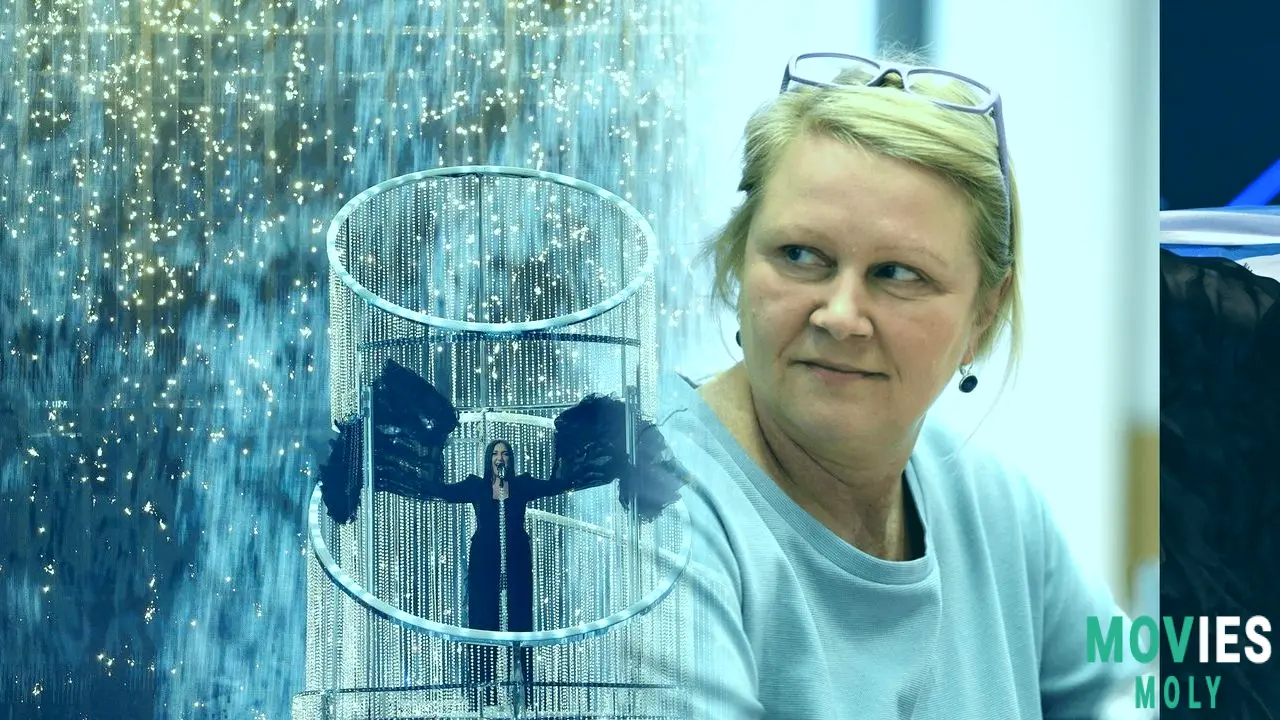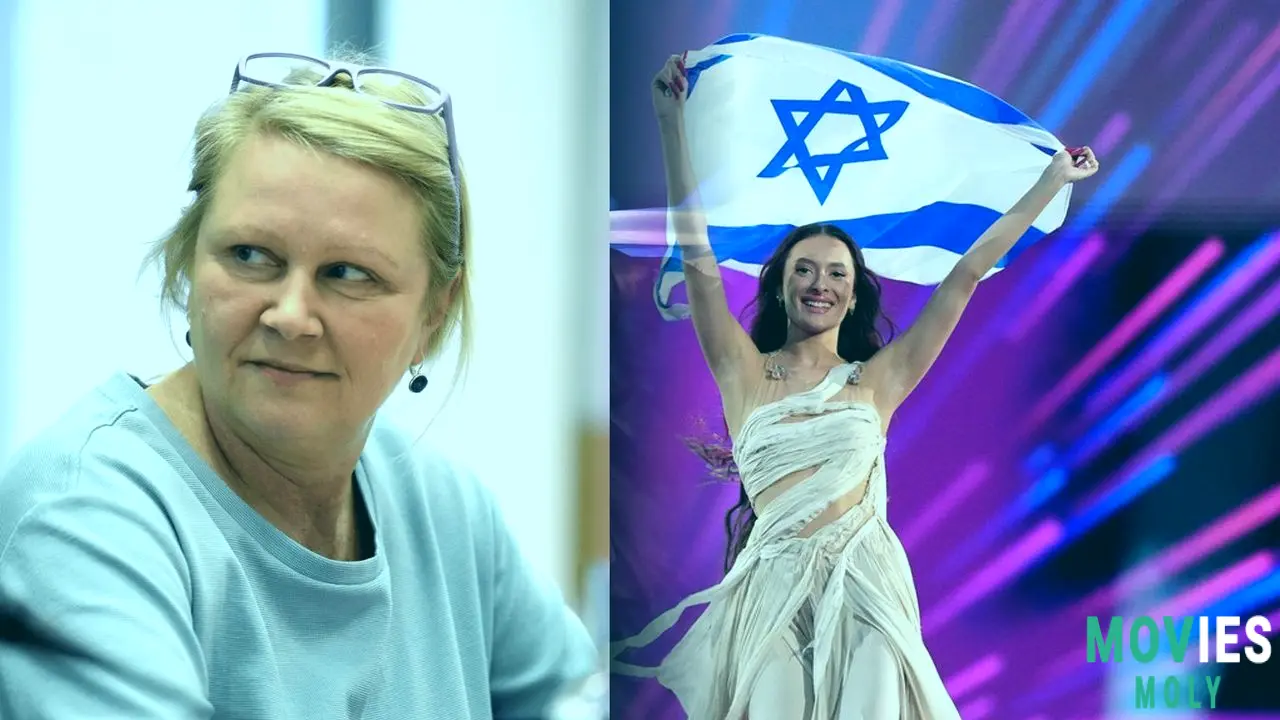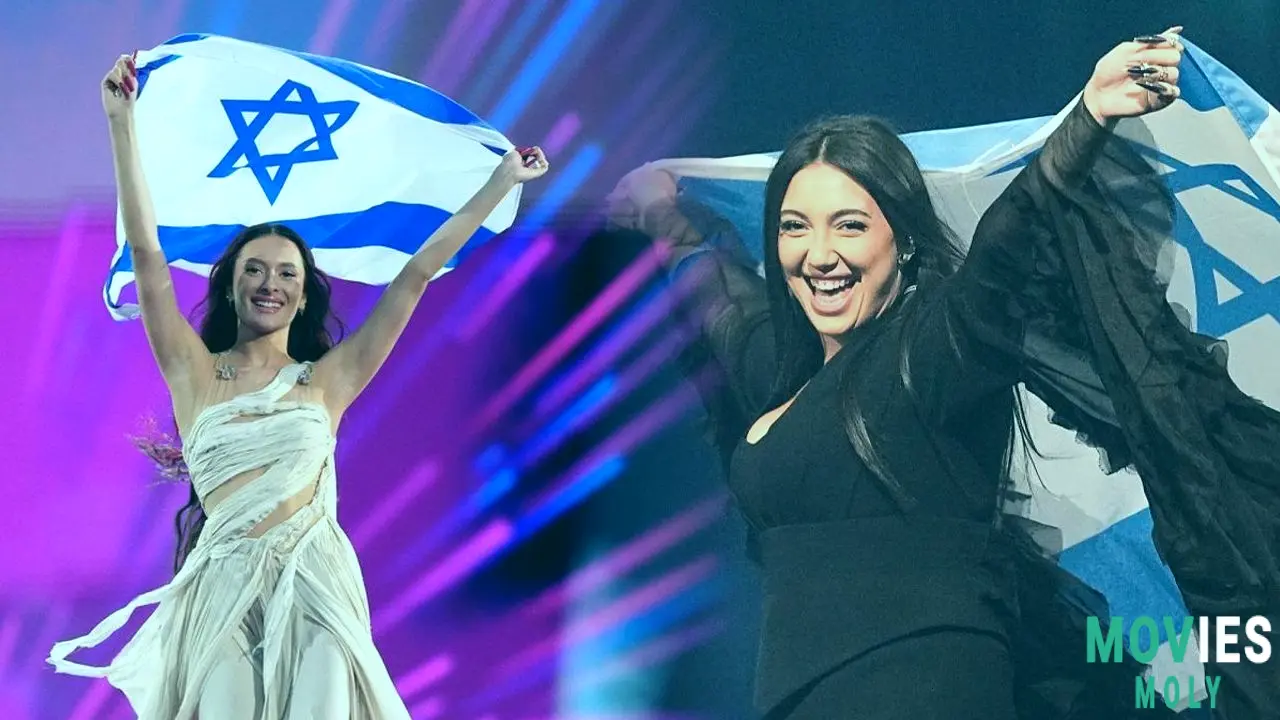The iconic song contest is facing unprecedented political challenges as the European Broadcasting Union puts off a crucial decision on Israel's role until December.
TL;DR- The EBU has pushed back a November vote on Israel's Eurovision 2026 participation until December.
- This delay, prompted by a Gaza ceasefire, aims for an "open and in-person discussion" among members.
- Many nations threaten to boycott if Israel competes, while hosts Austria and Germany warn against exclusion.
Alright, fellow music fans, if you thought Eurovision was just about catchy tunes and fabulous outfits, think again! The European Broadcasting Union (EBU) is currently navigating a seriously thorny political landscape, all centered around whether Israel will get to compete in the Eurovision Song Contest 2026. What was supposed to be a straightforward vote in November has just been punted to December, and it's stirring up a whole lot of drama across Europe.
This isn't just a minor squabble; we're talking about one of the biggest crises the contest has ever faced. Countries are drawing lines in the sand, public opinion is sharply divided, and the future of Eurovision's "unity and credibility" hangs in the balance. Let's break down everything you need to know about this unfolding situation.
The Unprecedented Delay: A Crucial Vote Postponed

The EBU, the big boss behind Eurovision, initially planned an "extraordinary meeting" and an online vote for early November. The goal? To decide on Israel's participation in the 2026 contest. But then, Monday rolled around, and everything changed.
Citing "recent developments in the Middle East" – specifically, a ceasefire between Israel and Hamas – the EBU's executive board announced it was scrapping the November vote. Instead, they decided that this complex issue "merited a broader democratic basis for a decision" and a "clear need for an open and in-person discussion among its members." So, the decision has been officially pushed to their regular winter General Assembly in December. The Austrian public broadcaster, ORF, which is set to host Eurovision 2026, actually welcomed this delay, saying it "helped maintain the unity and credibility of the contest." Sounds like they're hoping for some calmer heads to prevail, or at least a chance to talk it out face-to-face.
A Continent Divided: Nations Take Sides on Participation

This isn't a simple 'yes or no' question for the EBU; it's a diplomatic minefield. The conflict in Gaza has intensified calls for Israel's exclusion, leading to a significant split among participating countries. It's a real tug-of-war, with some nations threatening to pull out if Israel is included, and others warning they'll boycott if Israel is excluded.
Nations Threatening to Boycott if Israel Competes
Several countries have made their stance clear: if Israel is in, they're out. These include Ireland, the Netherlands, Slovenia, Spain, and Iceland. Spain, as one of the "Big 5" countries (who contribute the most financially and automatically qualify for the Grand Final), withdrawing would have a "significant financial impact" on the event. It's not just governments; Italy's broadcaster RAI has seen three of its seven board members call for Italy to withdraw, citing concerns that "participation of countries involved in serious human rights violations risks profoundly compromising [the contest's] meaning and credibility."
Slovenia’s RTVSLO Director General, Natalija Goršak, even voiced her disagreement with the EBU’s postponement directly, arguing that a ceasefire isn't enough to automatically reinstate Israel. "A ceasefire alone cannot be the reason for immediately agreeing that Israel should return to Eurovision. It would make more sense for the EBU to exclude Israel this year and avoid the political issues that would follow," she stated.
Public opinion is also leaning heavily toward exclusion in some places. A recent poll commissioned by political advisor Pablo O’Hana revealed that a whopping 82% of Brits (and 87% of Eurovision fans) believe Israel shouldn't compete in Vienna in 2026. Furthermore, 69% of all respondents said the UK should withdraw if Israel is allowed to participate. Over 17,000 people have even signed a Change.org petition demanding Israel's ban or a UK withdrawal, arguing that Israel's actions "cannot be ignored" and "stain the values" of Eurovision, which stands for "inclusivity, love, and unity."
"Eurovision was born from the rubble of the Second World War to unite a fractured continent through music. For nearly 70 years, it has done just that — evolving into one of the world’s most successful peace projects..."
"The EBU were right to exclude Russia after its unprovoked and illegal invasion of Ukraine... But the organisers now risk ripping out its soul. The EBU’s refusal to apply the same principle to Israel is forcing members to take a stand or face a credibility crisis."
— Pablo O’Hana, Political Advisor and Eurovision Superfan
Nations Supporting Israel's Participation or Against Exclusion
On the flip side, some powerful players are firmly in Israel's corner, or at least against the idea of excluding them. Germany, another "Big 5" country, is strongly against any boycott. Chancellor Friedrich Merz declared, "I consider it a scandal that this is even being discussed. Israel is part of it," and said Germany would "support" voluntarily withdrawing if Israel is boycotted.
Austria, the host nation for 2026, is in a particularly tricky spot. Its right-wing government is pushing hard for Israel's inclusion. Chancellor Christian Stocker and State Secretary Alexander Pröll are reportedly urging the Austrian Broadcasting Corporation (ORF) and the city of Vienna to cancel hosting if a boycott against Israel goes ahead. Vienna's Mayor, Michael Ludwig, called excluding Israel "a serious mistake." There's also a hefty financial implication: if Vienna backs out of hosting, ORF could face a penalty of up to 40 million euros (roughly $46 million) to the next host country.
Interestingly, despite the widespread boycott threats, France and Australia have confirmed their participation, seemingly unaffected by the controversy surrounding Israel's role.
Behind the Scenes: The European Broadcasting Union's Stance

The EBU has consistently defended Israel's inclusion in the past, reiterating that the contest is a "non-political event" and that Israel's public broadcaster, KAN, is a "long-standing member." However, the sheer scale of the current controversy seems to be testing that stance. It's been reported that the EBU has "unofficially" suggested to Israeli representatives that they might need to temporarily withdraw or perform under a "neutral flag" – a similar approach taken by Russian athletes in some Olympic Games. This hints at a recognition of the political pressure, even if they aim to remain officially non-political.
The comparison to Russia's exclusion after its 2022 invasion of Ukraine is a recurring point of contention. Many argue that if Russia was banned for its actions, Israel should face the same consequences. The poll mentioned earlier found that 94% of Brits agreed with Russia's exclusion, and nearly three-quarters found the differing treatment "inconsistent."
A History of Tension: Israel's Recent Eurovision Journey

This isn't Israel's first rodeo with controversy at Eurovision. Since the October 7, 2023 Hamas attacks, Israel has participated in two contests, both held against a backdrop of intense protest. In 2024, Eden Golan represented Israel with her song "Hurricane" – a powerful ballad about losing love amid trauma. Her performance in Sweden was met with thousands protesting Israel's participation.
Then, in Basel earlier this year for the 2025 contest, Israeli singer Yuval Raphael took second place with "New Day Will Rise." She had a deeply personal connection to the conflict, having survived the October 7 attacks by hiding beneath bodies at a music festival. Her performance was also targeted, with protestors attempting to rush the stage to disrupt her act.
What Lies Ahead: Vienna 2026 and the December Showdown

So, what happens next? All eyes will be on the EBU's winter General Assembly in December. This in-person meeting will be crucial, as member broadcasters will gather to discuss the thorny issue of Israel's participation. It's unclear if a vote will still take place as originally planned or if new proposals, like the neutral flag option, will be seriously considered.
The 70th anniversary edition of Eurovision is still scheduled to take place in Vienna, Austria. The semi-finals are set for May 12 and 14, 2026, leading up to the Grand Final on May 16, 2026. However, the path to those dates is looking anything but smooth. The EBU faces immense pressure to make a decision that appeases its diverse membership, upholds its stated values of unity, and navigates the volatile geopolitical climate.
Whether Israel ultimately competes, withdraws, or performs under a neutral flag, one thing is certain: the conversation surrounding Eurovision 2026 is far from over. This ongoing debate highlights just how much this "non-political" song contest has become a reflection of global events, forcing us to consider the intersection of music, culture, and very real-world conflicts.
Frequently Asked Questions About Eurovision 2026 and Israel's Participation

- "Why Israel’s place in Eurovision is worth fighting for" by Hannah Brown
- "The European Broadcasting Union (EBU) has pushed to December a vote planned for next month over Israel's Eurovision participation after the Israel-Hamas ceasefire." by Tokunbo Salako
- "Austria may withdraw from hosting Eurovision 2026 if Israel is excluded" by Grace Gilson (JTA)
- "RTVSLO’s Director General: 'A ceasefire doesn’t mean Israel should compete at Eurovision'" by Silvia Stifini
- "8 in 10 Brits Want Israel Banned from Eurovision 2026" by Jamal Awar
- "Eurovision emergency vote on Israel's inclusion is called off" by Bethany Minelle (Sky News)
- "Over 17k sign petition to bar 'Israel' from Eurovision"
- "Eurovision organisers delay decision on Israel’s 2026 participation to December" (Reuters/AFP)
- "Plans for a special November vote to decide whether Israel may take part in the 2026 Eurovision Song Contest in Vienna have been shelved..." by Timothy Holdiness
- "Eurovision 2026: France and Australia confirm participation despite boycott threats over Israel"






